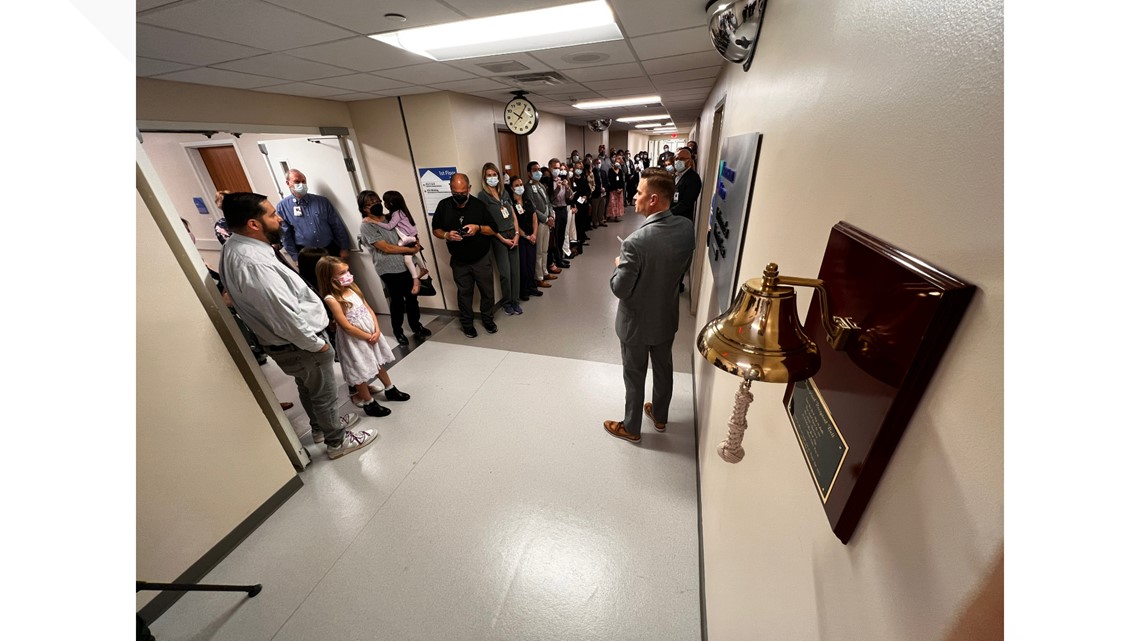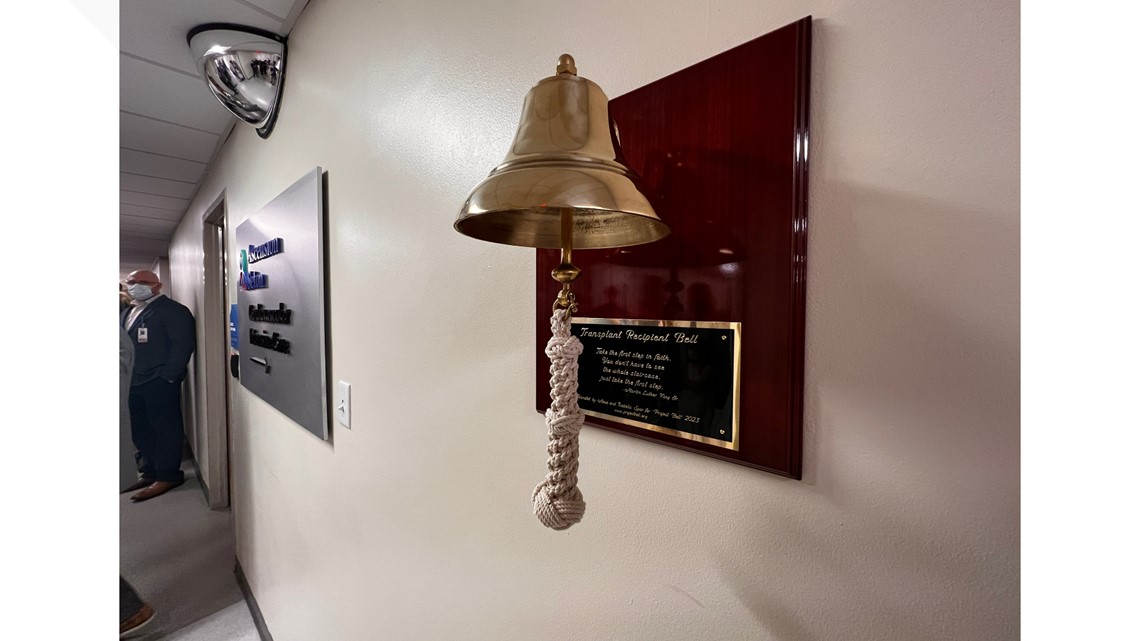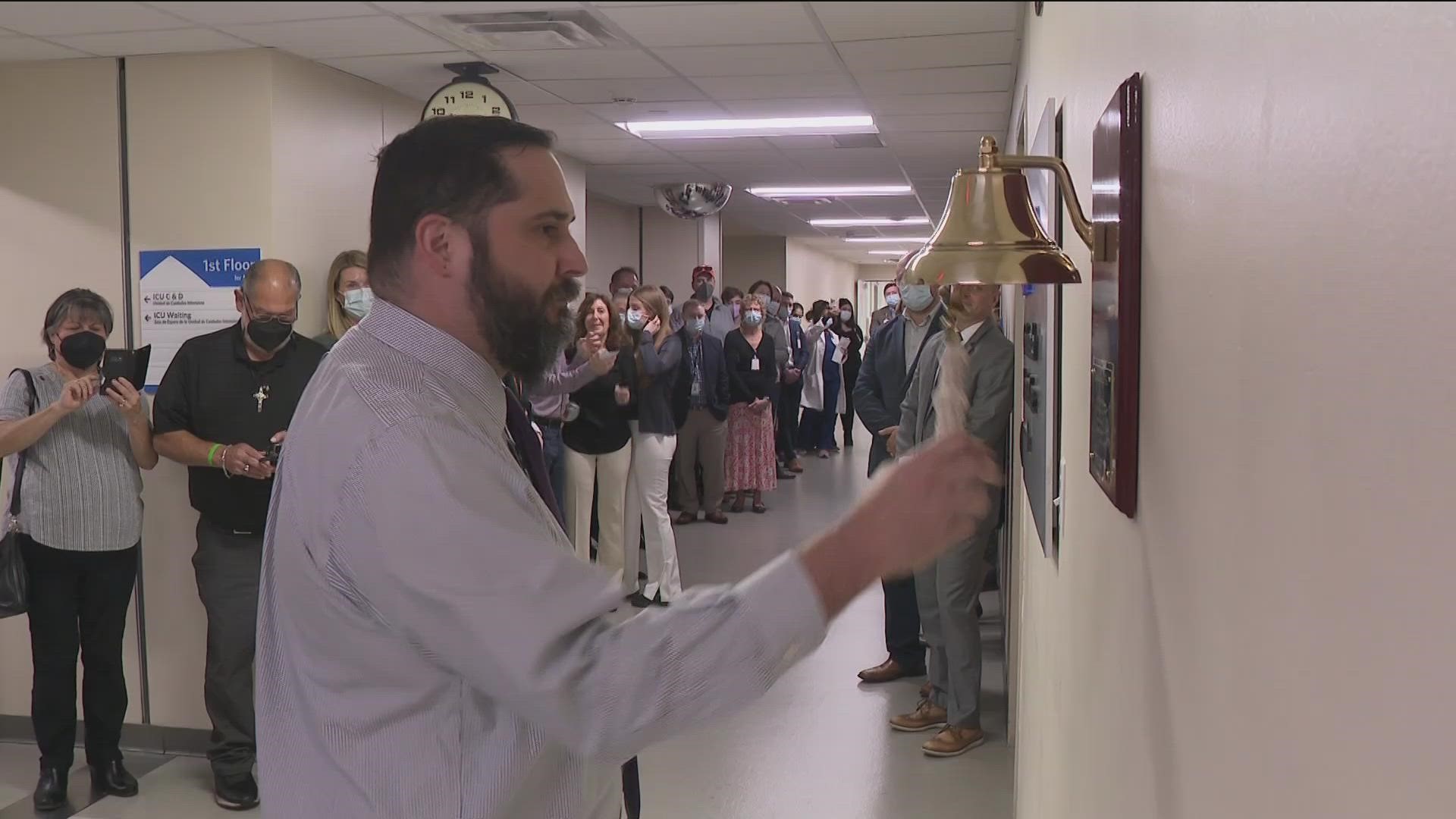AUSTIN, Texas — A heart transplant patient at Ascension Seton is getting to ring the "transplant bell" for the first time.
Ascension Seton is expanding the hospital's capacity to handle complex heart care capabilities to include care like heart transplants. As a way to celebrate the expansion, the hospital has installed a "Heart Transplant Bell" at the Ascension Seton Medical Center Austin, and heart transplant patient Raul Rangel, 39, has the honor of ringing the bell for the first time.
Rangel, joined by his wife, three children and parents, received a heart transplant by the medical staff at the hospital.


After getting COVID-19 in September 2021, Rangel began experiencing health issues.
“If I walked across the room, my heart rate would shoot up to 190,” Rangel said. “I just thought I was out of shape after being in bed with COVID for a month.”
After his heart rate began increasing, Rangel had gone to work after waking up with indigestion and threw up black liquid - he was admitted to a hospital in Round Rock, coded and woke up three weeks later in the Austin location on an extracorporeal membrane oxygenation (ECMO) device.
The ECMO acts as the heart by pumping blood, providing it with oxygen and removing carbon dioxide.
Once Rangel was in the ICU for 60 days, he was given a left ventricular assist device (LVAD), which is a surgically-implanted device that pumps blood through the left ventricle and into the rest of the body. Six weeks after the LVAD was placed, Rangel received his new heart.
“Dr. Ernest Haeusslein, my cardiologist, is awesome – his knowledge in this area is very reassuring. Dr. Bill Kessler worked on me when I coded and put the LVAD in. It was a bad situation but everyone at Ascension made everything better," explained Rangel.


The transplant bell was created by Alexa and Isabella Spar, the co-presidents of the nonprofit organization Project Bell. Project Bell was created to help donate "new beginning" bells to cancer centers after patients complete their treatment.
Now, the nonprofit has began expanding into transplants and have now donated one at the UT Health Abdominal Transplant Center and another for Ascension Seton Medical Center’s heart transplant program.

